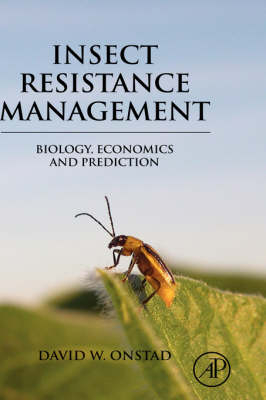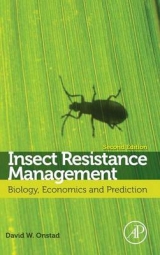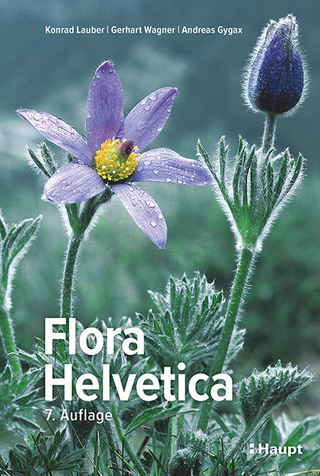
Insect Resistance Management
Academic Press Inc (Verlag)
978-0-12-373858-5 (ISBN)
- Titel erscheint in neuer Auflage
- Artikel merken
Insects, mites, and ticks have a long history of evolving resistance to pesticides, host-plant resistance, crop rotation, pathogens, and parasitoids. Insect resistance management (IRM) is the scientific approach to preventing or delaying pest evolution and its negative impacts on agriculture, public health, and veterinary issues. This book provides entomologists, pest management practitioners, developers of new technologies, and regulators with information about the many kinds of pest resistance including behavioral and phenological resistance. Abstract concepts and various case studies provide the reader with the biological and economic knowledge required to manage resistance. No other source has the breadth of coverage of this book: genomics to economics, transgenic insecticidal crops, insecticides, and other pest management tactics such as crop rotation. Dr. David W. Onstad and a team of experts illustrate how IRM becomes efficient, effective and socially acceptable when local, social and economic aspects of the system are considered. Historical lessons are highlighted with new perspectives emphasized, so that future research and management may be informed by past experience, but not constrained by it.
Dr. David W. Onstad has been an entomologist for over 40 years focusing on insect resistance management, insect epizootiology, economics of integrated pest management, and ecological modeling. He was elected fellow of the Entomological Society of America in 2022. Since retiring after 26 years as a professor at the University of Illinois, he has been the lead mathematical modeler for DuPont Pioneer/CortevaAgriscience in support of data-driven strategic decision-making, assessing resistance risks, and product registration and development of transgenic insecticidal crops.
Chapter 1
Major Issues in Insect Resistance Management
Chapter 2
Valuing Pest Susceptibility to Control
Chapter 3
Insecticide Resistance in the Post-Genomics Era
Chapter 4
Complexities of Population Genetics
Chapter 5
Adapting Insect Resistance Management Programs to Local Needs
Chapter 6
Negative Cross-Resistance: Past, Present, and Future Potential
Chapter 7
Resistance by Ectoparasites
Chapter 8
Insect Resistance to Crop Rotation
Chapter 9
Arthropod Resistance to Crops
Chapter 10
The Role of the Environment in IRM for Transgenic Insecticidal Crops
Chapter 11
Insect Resistance Management: Adoption and Compliance
Chapter 12
Modeling for Prediction and Risk Assessment
Chapter 13
Monitoring Resistance
Chapter 14
The Future of Insect Resistance Management
| Erscheint lt. Verlag | 5.12.2007 |
|---|---|
| Verlagsort | San Diego |
| Sprache | englisch |
| Maße | 152 x 229 mm |
| Gewicht | 630 g |
| Themenwelt | Naturwissenschaften ► Biologie ► Botanik |
| ISBN-10 | 0-12-373858-X / 012373858X |
| ISBN-13 | 978-0-12-373858-5 / 9780123738585 |
| Zustand | Neuware |
| Haben Sie eine Frage zum Produkt? |
aus dem Bereich



